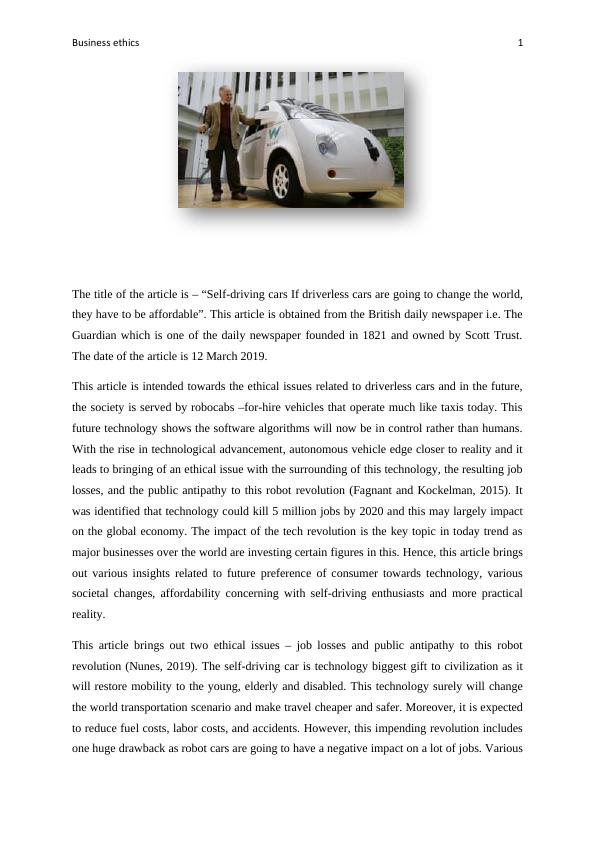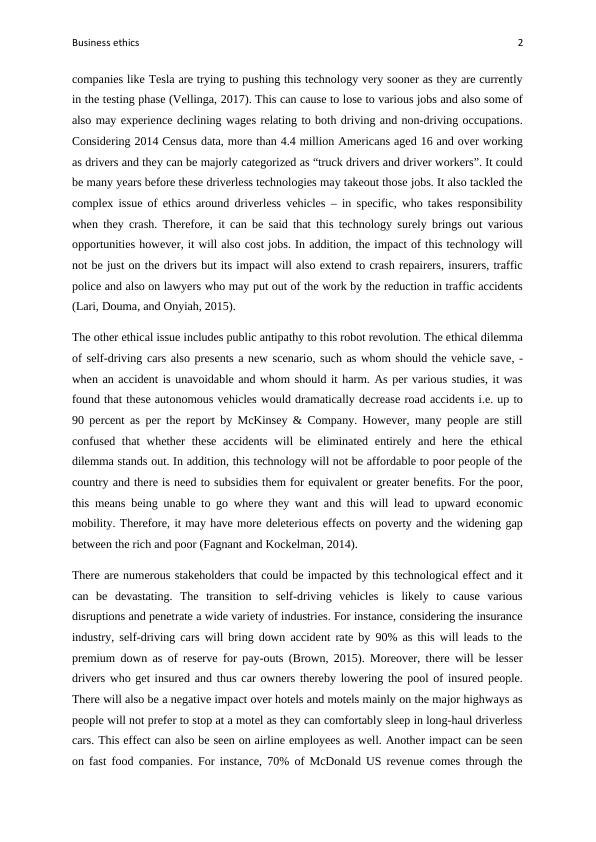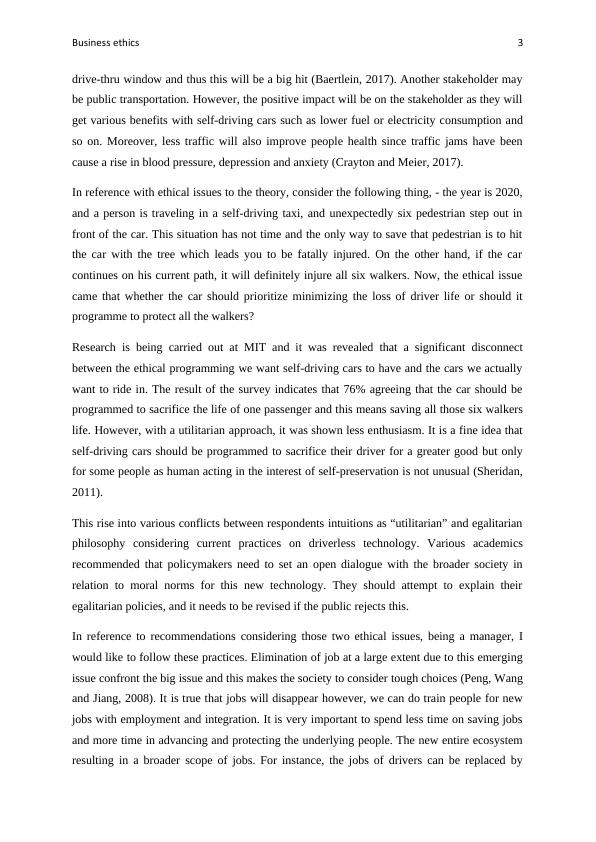Ethical Issues of Self-Driving Cars and Artificial Intelligence
Performance Indicator Yet To Achieve Minimum Standard Learning objectives and Key Assignment Writing Skills. Poor/ Needs Improvement Selection of news article within specified time frame. Failure to select appropriate news article.
12 Pages4066 Words74 Views
Added on 2023-01-19
About This Document
This article discusses the ethical issues related to self-driving cars and artificial intelligence, including job losses and public antipathy. It explores the impact on various stakeholders and provides recommendations for addressing these issues. The article also highlights the need for new privacy legislation to address the downstream use of AI and machine learning.
Ethical Issues of Self-Driving Cars and Artificial Intelligence
Performance Indicator Yet To Achieve Minimum Standard Learning objectives and Key Assignment Writing Skills. Poor/ Needs Improvement Selection of news article within specified time frame. Failure to select appropriate news article.
Added on 2023-01-19
ShareRelated Documents
End of preview
Want to access all the pages? Upload your documents or become a member.
The Fast Pace of Technological Innovation
|4
|1123
|118
Topics in IT Ethics Assignment
|8
|1885
|102
Driverless cars.
|6
|340
|272
ITECH7203 - Professional Development, Contemporary Ethical Issue
|15
|3474
|31
The Future Of Driverless Vehicle
|14
|624
|62
Foundation of Information System (pdf)
|7
|1877
|183




